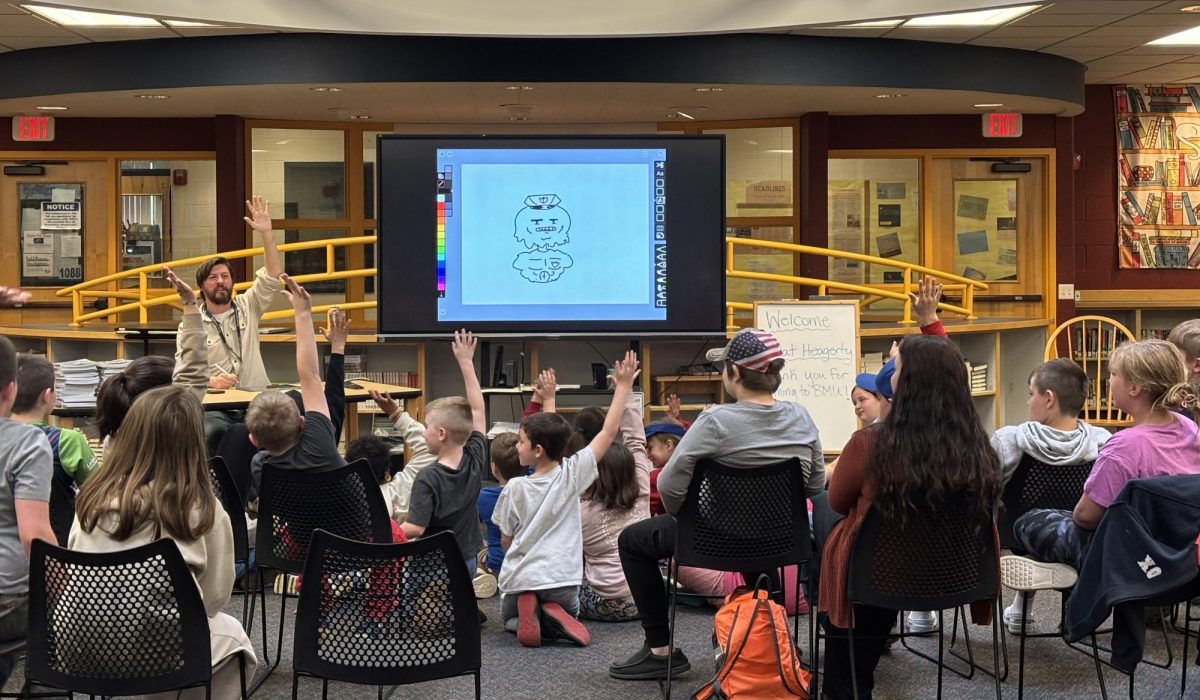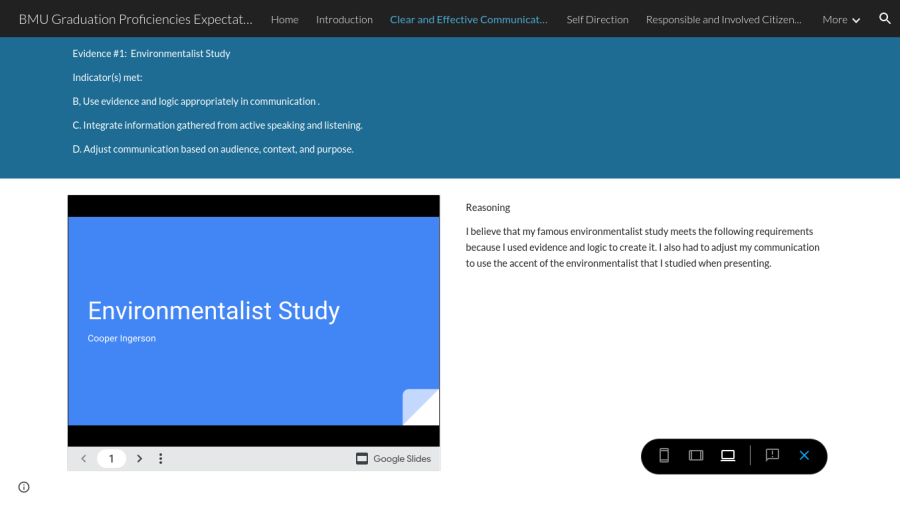Transferable Skills
January 21, 2022
Transferable Skills are a fairly new requirement at BMU. In recent years a new graduation requirement has come to fruition. This new requirement is all about understanding and demonstrating the following skills: Clear and Effective Communication, Self Direction, Responsible and Involved Citizenship, Informed and Integrative thinking, and Creative and practical problem solving. The Vermont Agency of Education states, “Unlike standardized tests that measure how well students have mastered specific knowledge and skills through a series of questions, performance assessments typically require students to complete a complex task, such as a writing assignment, science experiment, speech, presentation, performance, or long-term project, to demonstrate mastery of the topic.”
The point of the new project is to prove that a senior has demonstrated an understanding of these skills and can apply them in their life. The way to prove this is to use pieces of “evidence” (such as a presentation, a job, an assignment etc.) to show that you have completed the indicators. Indicators are smaller requirements that prove you have met a Transferable Skill. Your evidence pieces must show how you met an indicator and that you understand it as well. To meet a Transferable Skill you must show you completed and understand a majority of the specific indicators.
Seniors must create a website or slideshow to present the information. They then present their work to three judges who are generally staff members of the school or school board. This is done generally in person but can happen over Zoom if necessary. The judges decide whether or not the student has completed each transferable skill. If a student fails to meet one of the skills they must redo that skill. They then present that one skill at another time.
Mrs. Nancy Kane is a highly sought after judge at BMU. She stated, “I’ve been judging transferable skills since I have been at Blue Mountain and it has changed over time. Originally students had to truly create their own website on Weebly, and now students have a wide variety of templates they use including slideshows. As a judge I’m interested in what students remember as as being significant work. Sometimes I remember more than they do. Some students are so anxious they are almost paralyzed yet they all push through it. I love seeing them stand up proudly and own their work.”
Ethan Gilding is a senior at BMU and has already finished his presentation. He has this to say about the process. “It seems like a hassle at first, but once you get going it becomes less intimidating .” Last week I presented my own project over Zoom, due to a shutdown of the school. I stressed over the presentation all day until it started. Fortunately the judges aren’t out to fail you; they are there to help you. The questions they ask are meant to make sure you’re not leaving out information that could help you get credit for a skill. My advice to other seniors is to not stress about your presentation and remember the judges are there for you not against you.



























